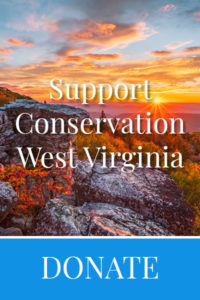Climate Change is a real pain in West Virginian’s wallets.
Higher Food Prices
We see it at the grocery store. We see it at restaurants. Food prices are up. Extreme weather is disrupting food supplies and hurting farmers. In 2022, Florida’s citrus growers lost $416 million from Hurricane Ian. Prices for orange juice and lemons skyrocketed. In other states, droughts are damaging food crops and raising the cost of crop insurance.
Restaurant prices are up, too. Locally owned eateries have really been battered. With the prices of staples like rice and wheat rising, restaurant prices have soared 24 percent since 2020. A report by the Global Food Institute says weather changes affect both the availability and costs of ingredients — and the volume of business. When it’s too hot or too cold, diners stay home.
Extreme weather hurts West Virginians in their wallets. Isn’t it time to Fix It?
Homeowners and Renters Insurance
Did you know wildfires in Texas and floods in Florida can raise your insurance costs? They can. West Virginia law allows it. It allows insurance companies to set rates based on losses outside of West Virginia.
They’re also allowed to set your rates based on catastrophe standards in our state. This means that increased storm losses anywhere in West Virginia can raise insurance rates for all West Virginia homeowners. No matter where you live in the state. For renters, it’s both the rising cost of your landlord’s insurance and your own rental policy, if you have one.
Higher Electric Bills
Did you know the cost of solar power has dropped 90% in the last decade? That’s 9-0. Solar and wind are now cheaper than coal.
Yet West Virginians are still forced to by their electricity from monopoly power companies. We don’t have options like “community solar” or energy choice on our electricity bills like many other states. States that do allow their residents a choice in their power source often have lower electricity rates.
The electric bills West Virginians pay are higher than the majority of other states. Even though our state ranks second in reliance on coal-fired power plants for electricity generation. Coal was so important to our history, culture, and economy. But other forms of energy are cheaper and more efficient now. Our high electricity bills are propping up some coal-powered plants. If you don’t mind, that’s okay. But if you’d like a choice about your electric bill, it’s time to stop blocking solar energy in West Virginia.

